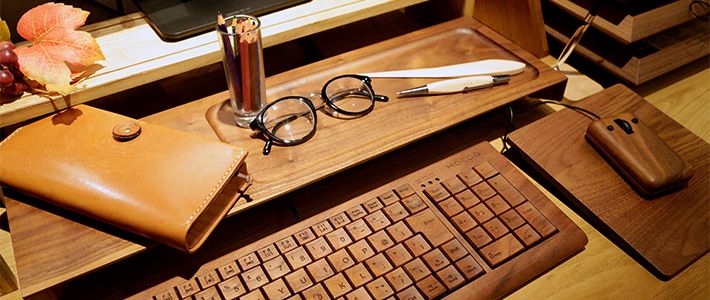
The Simple Joys of Japanese Stationery
Crafted Comfort: Hacoa Brings the Warmth of Wood to the Digital Age
Guideto Japan
Culture- English
- 日本語
- 简体字
- 繁體字
- Français
- Español
- العربية
- Русский
The two-floor commercial space Find Japan Market on the upper levels of Tōkyū Plaza Ginza in Tokyo boasts a diverse selection of traditional handcrafted wares. Among the offerings is Hacoa, a brand that features an array of cleverly designed accessories for home and office that combine practicality with the warmth of wood.
A Brand Born from Uncertainty
Ichihashi Hitoshi, the second-generation president of Yamaguchi Crafts in Sabae, Fukui Prefecture, launched Hacoa in 2001. After taking over operations of the company from his father-in-law and founder Yamaguchi Ryōji, Ichihashi could not ignore the harsh reality the industrial crafts maker faced.
Although the firm proudly created pieces of Echizen lacquerware, a craft tradition stretching back centuries, there was no denying the diminishing role of such items in modern society. Traditional lacquer bowls, trays, and other works were once part of daily life in households, but are now often only dusted off for New Year or other special occasions. With demand waning, Ichihashi feared that without a new approach the local lacquerware industry would wither away entirely. His answer to this dilemma was Hacoa.
According to Hacoa’s Ginza shop manager Sakurai Naho, the brand’s name expresses a desire to add value to people’s lives. “The company has long specialized in making the wood bases of lacquerware boxes and trays,” she explains. “These were the inspiration for Haco, or ‘box.’ An A was added to express high quality, as in A-class, creating the name Hacoa.”
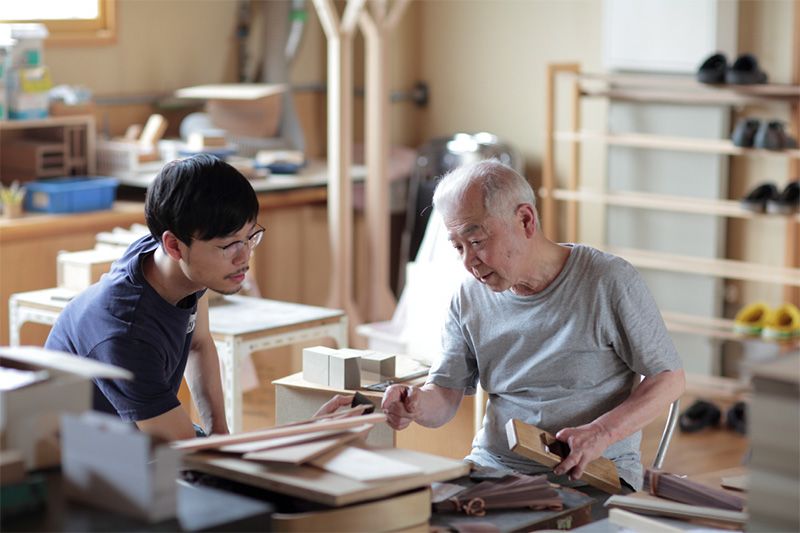 Yamaguchi Crafts founder and chairman and licensed artisan Yamaguchi Ryōji passes along his woodworking expertise to a younger worker. The company employs 15 artisans, many still in their twenties and thirties. (© Hacoa)
Yamaguchi Crafts founder and chairman and licensed artisan Yamaguchi Ryōji passes along his woodworking expertise to a younger worker. The company employs 15 artisans, many still in their twenties and thirties. (© Hacoa)
A Natural Touch
Yamaguchi Crafts launched Hacoa with a lineup of only 10 products, including a wooden computer keyboard, that it sold at a dedicated store attached to its workshop in Sabae. Despite these meager beginnings, though, the brand quickly made an impact with the warmth of its natural wood designs, winning accolades from people looking to liven up the drab feel of their PCs and other electronic devices.
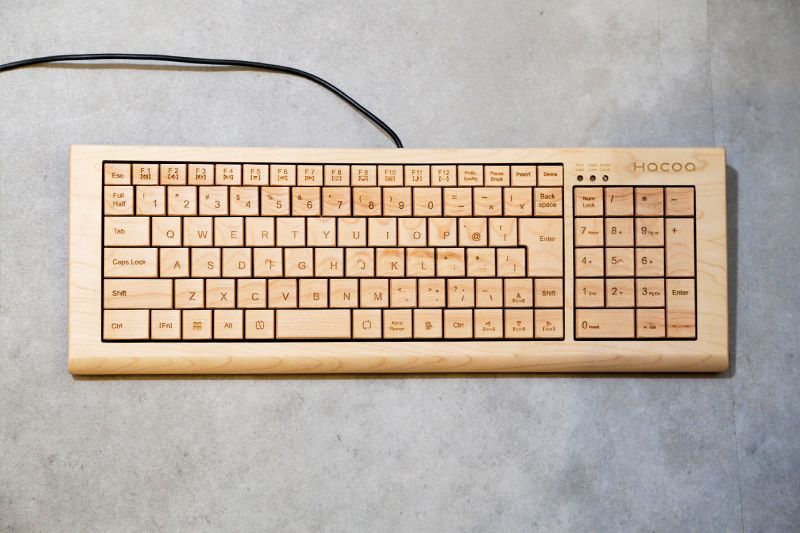 Hacoa’s wooden computer keyboard has come to symbolize the brand.
Hacoa’s wooden computer keyboard has come to symbolize the brand.
The keyboard, inspired by a customer whose allergies made it hard to use plastic consoles, proved to be particularly popular. Offered in maple and walnut varieties, it has a pleasant touch and sound, and the keys tend to take on an attractive gloss with use.
It has since become the brand’s flagship product, drawing attention as much for its design and usability as for its eye-popping ¥90,000 price. Although expensive, Sakurai insists that the appeal of its natural wood look keeps the keyboard as a leading wish-list item.
Tapping into Tradition
Another of Hacoa’s much-sought-after offerings is its lineup of USB memory sticks. Available in varieties including maple, teak, and rosewood, these are expertly sculpted from single cuts of wood so that the grain of the cap and body precisely line up.
The firm has also had success with its smartphone cases. Like the USB sticks, these are crafted from single pieces of wood that are carefully polished to bring out the natural feel of the material.
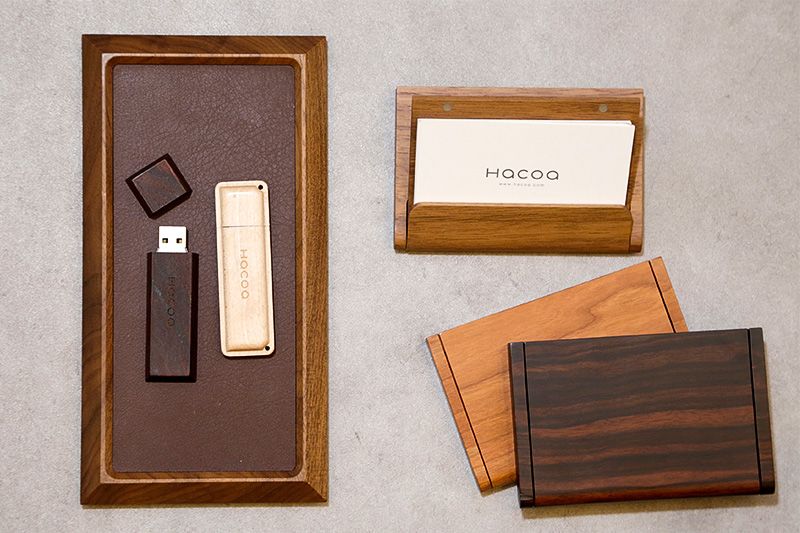 Hacoa’s USB memory sticks and business card cases.
Hacoa’s USB memory sticks and business card cases.
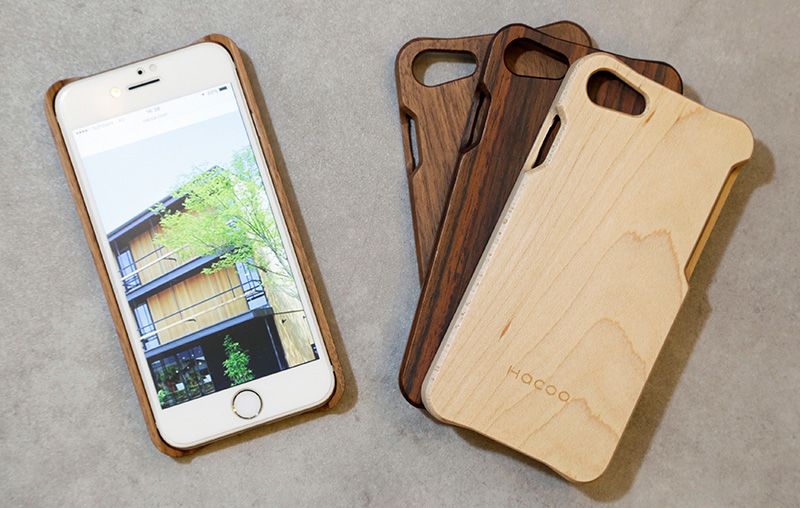 The company also offers a series of handcrafted iPhone cases.
The company also offers a series of handcrafted iPhone cases.
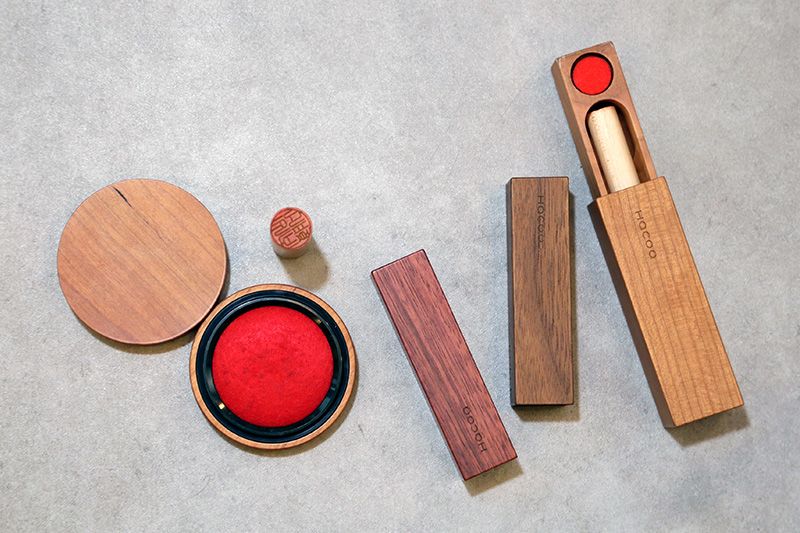 The brand also has more traditional items for the Japan market, like cases for personal seals and ink pads.
The brand also has more traditional items for the Japan market, like cases for personal seals and ink pads.
Listening to the Materials
Working with wood requires close attention to the condition of the raw material, and artisans must minutely adjust measurements according to temperature, humidity, and other variables to ensure that the products function uniformly year-round. “Wood reacts to the environment, making it a challenge to maintain a consistent quality across all seasons,” says Sakurai. “A part manufactured during the humid months of spring or summer has to fit a little more tightly, while during the dry winter it needs to be slightly loose.”
This tendency to swell and contract makes wood susceptible to damage like warping and cracking. Hacoa’s artisans, though, are equally adept at repairs, reapplying broken pieces or filling cracks with specialized wood putty so that customers can continue enjoying items for years to come.
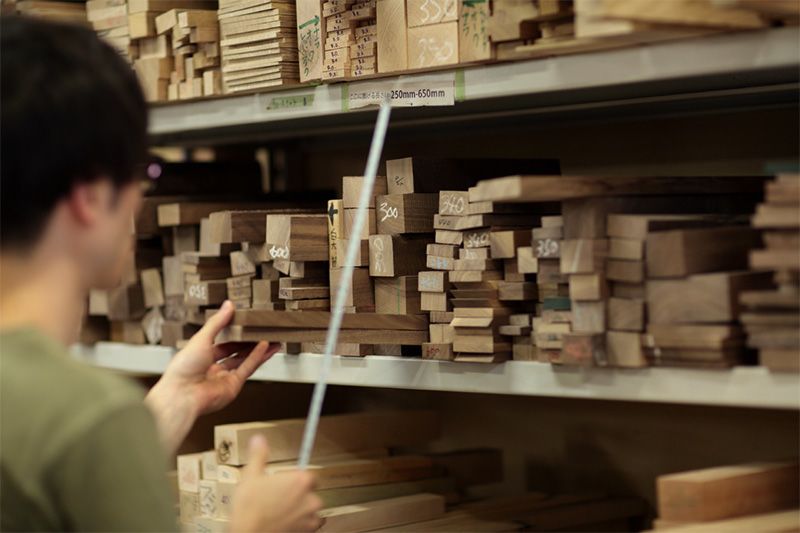 A workshop shelf with different cuts, sizes, and varieties of wood. (© Hacoa)
A workshop shelf with different cuts, sizes, and varieties of wood. (© Hacoa)
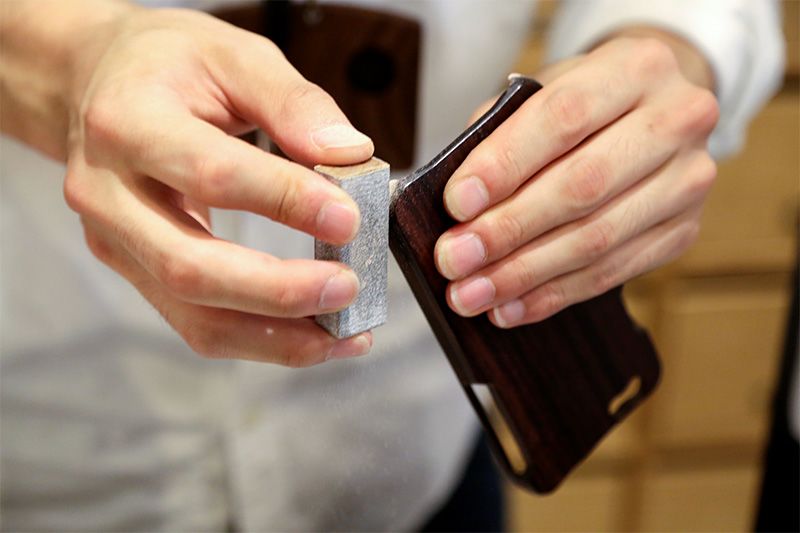 A Hacoa artisan carries out minor repairs on a smartphone case.
A Hacoa artisan carries out minor repairs on a smartphone case.
Unfettered Creativity
Hacoa rolls out about one new item a month. It achieves this output—prolific for a company of this size—by speedily turning the advice of customers and makers into functional and appealing products. Instead of spending time drawing up blueprints, workers use simple sketches to create mockups that are then refined with input from other staff. Once consensus on design, price, and other points is reached, the piece goes into production.
The ability of staff to quickly move from idea to finished product keeps the brand’s growing lineup fresh. Customers can browse the catalog online or visit one of several Hacoa Direct Stores in Japan. Along with a flagship shop in Sabae, the brand has outlets in Osaka, Nagoya, Sendai, Tokyo, and Yokohama, among other locations. Travelers to central Japan can also peruse the store inside Chūbu Centrair International Airport.
Hacoa is currently only available abroad from retailers at select locations in Taiwan, but Sakurai says there are plans to open more dedicated stores overseas. As an early step, the brand is currently building its name over the Internet and is enjoying a steady growth in interest via its website and social media channels.
(Originally published in Japanese on October 26, 2017. Photographs by Nagasaka Yoshiki except where noted.)